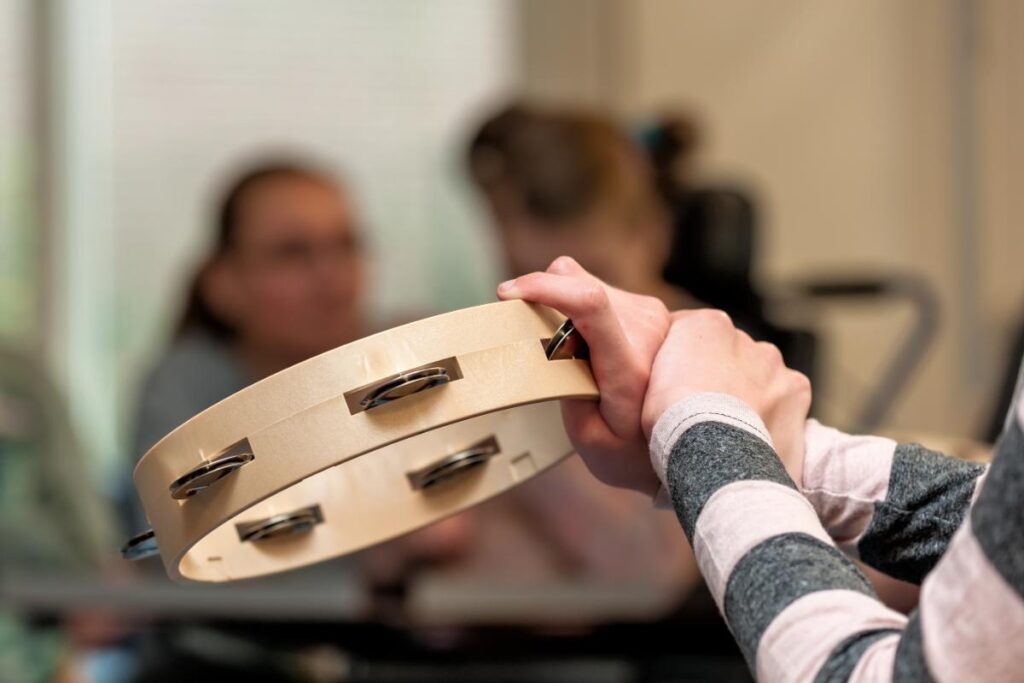Music is known for its ability to call forth emotion. It’s also known for its ability to help you control both your emotions and your overall mood. Given these realities, it’s not surprising that a music therapy program can be a useful tool for treating depression. After all, depression is America’s most common mood disorder. What’s more, music therapy program participation can also help you cope with other mental health challenges, including serious anxiety. The therapy works because it uses music in specific, constructive ways.
What Is Music Therapy for Depression and Anxiety?
Music therapy for depression and anxiety uses music as the basis for positive mood alteration. This therapy does not play a leading role in depression or anxiety treatment. Instead, it’s added to other elements of your recovery plan for these conditions. During treatment, your therapist can use music to help you do such things as:
- Trigger specific moods or feelings
- Make helpful changes in your conscious experience of reality
- Examine your thoughts and emotions
Achievement of these kinds of goals requires trust and a working partnership between you and your therapist. This partnership does not depend on you having any prior experience with music. In fact, anyone can potentially benefit from the therapy.
Potential Music Therapy Techniques for Depression Treatment
Are there any specific music therapy techniques for depression? Yes. One important technique is receptive music listening. In this approach, you don’t make music yourself. Instead, you listen to a recorded or live performance. You then respond to this performance in any of several ways, including:
- Reflecting internally
- Talking about your experience with others
- Using guided imagery supplied by your therapist
- Drawing or journaling
You may also benefit from more active forms of music therapy. For example, you may learn how to play an instrument. You may also compose a piece of music or improvise something on the spot. In addition, your therapist may ask you to sing new songs or songs you already know.
What Are the Benefits of Music Therapy for Depression?
Exactly how does music therapy help depression? The answer to that question depends on the therapy technique in use. What are the benefits of music therapy for depression that relies on receptive listening? Research shows that this form of therapy can help you lower your stress levels. It can also help ease the physical pain that often accompanies depression. In addition, receptive listening may help you overcome a depression-related lack of energy.
What about active music therapy for depression? People who receive this form of therapy may experience a broad range of benefits. For example, you may find it easier to regulate your emotions. You may also find it easier to focus, problem-solve and interact with others. In addition, many participants experience a greater sense of achievement and improved self-esteem.
There is no reason to rely on only receptive or active music therapy techniques. By combining both options, you may receive an even greater benefit from the treatment. That’s true for depression recovery. It’s also true for recovery from serious anxiety.
Get More Information on How Music Therapy Helps Depression at Northpoint Colorado
Want more information on how music therapy helps depression recovery? Talk to the professionals at Northpoint Colorado. We can answer your questions and help you gain a better understanding of music therapy in general.
Northpoint specializes in using music therapy to treat depression in people recovering from substance problems. This may be crucial for your recovery since depression and substance abuse/addiction frequently co-exist. To find out more about how we employ music therapy, call us today at 888.231.1281. We’re also available through our online contact form.

